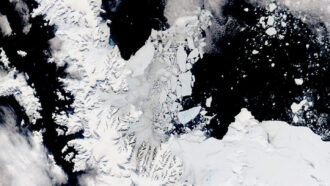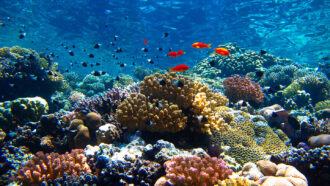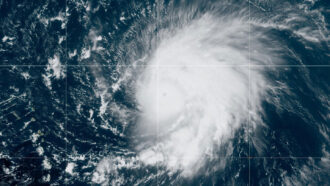
Oceans
Analyze This: Climate change may worsen the spread of ocean noise
Some parts of the ocean may become five times as loud in the future.
Come explore with us!

Some parts of the ocean may become five times as loud in the future.

This field of science looks to understand life — past and present — by studying how organisms altered their surroundings.

Destabilized by waves and vanishing sea ice, one of the glaciers lost 25 kilometers (15.5 miles) of ice in 16 months — a possible hint of worse to come.

Offshore wind farms cost more than onshore ones. But their ability to make ‘green’ hydrogen and capture carbon dioxide could help this wind power pay off.

Giant kelp are at risk due to climate change and human activities. In New Zealand, a community effort is rebuilding these underwater algal forests.

Shading coral reefs during the sunniest part of the day may help corals survive marine heat waves.

This dangerous trend appears relatively new — and growing. Studies also have begun linking it to our warming world.

Living corals could be frozen for safekeeping. Scientists could later revive them to restore reef ecosystems that are withering in warming seas.

Much as people do, toothed whales, such as dolphins and sperm whales, make noises in three different vocal registers.

Human-caused climate change has played a big role in this summer’s historic heat.